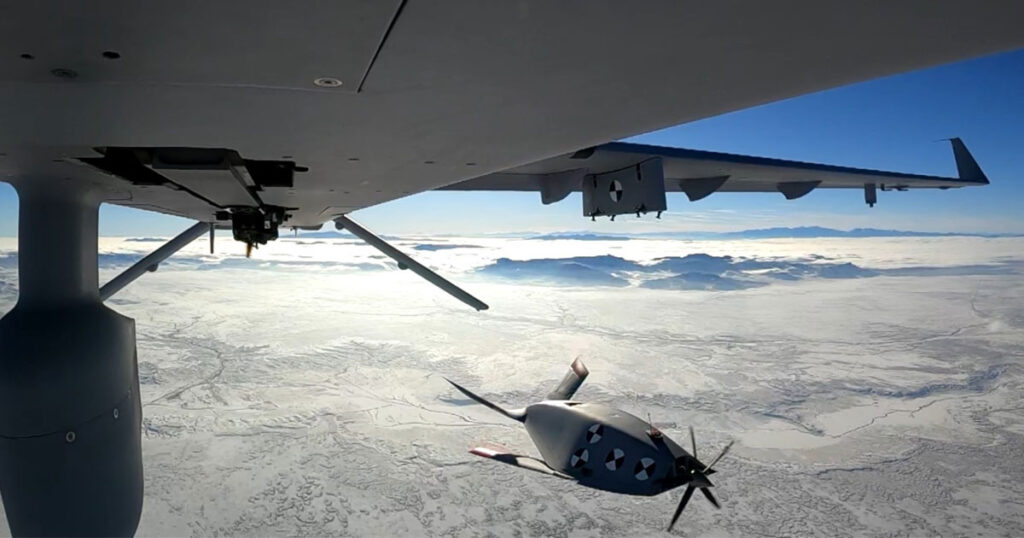GA-ASI’s Eaglet Takes Its First Flight
- Technical Demonstration With ARL and AvMC Shows Off New Survivable ALE
SAN DIEGO, January 31. General Atomics Aeronautical Systems, Inc. (GA-ASI) flew a new survivable Air-Launched Effect (ALE) for the first time as part of a flight demonstration based out of the Dugway Proving Grounds, Utah, on Dec. 8, 2022. The ALE, known as Eaglet, was launched from a US Army MQ-1C Gray Eagle Extended Range (GE-ER) Unmanned Aircraft System (UAS). The Eaglet flight was jointly funded by GA-ASI and the US Army Combat Capabilities Development (DEVCOM) Army Research Laboratory (ARL) and Aviation & Missile Center (AvMC).

“The first flight of the Eaglet was an important milestone for the GA-ASI/US Army team,” said GA-ASI President David R. Alexander. “Eaglet is intended to be a low-cost, survivable UAS with the versatility to be launched from a Gray Eagle, rotary-wing aircraft, or ground vehicles. It enables extended reach of sensors and increased lethality while providing survivability for manned aircraft.”
Eaglet fits into the ‘ALE Large’ category, which encompasses larger, more powerful sensors or payloads. Because of its design, Eaglet is capable of carrying a diverse range of payloads in support of multiple Army missions.
Eaglet design extends battlefield options for commanders while reducing their decision cycles. Gray Eagle can carry Eaglet for thousands of kilometers before launching it while being controlled through unmanned-unmanned teaming or as a component of advanced teaming command and control concepts.
Eaglet can work in concert with other long-range payloads carried by Gray Eagles, helicopters, or other platforms to support deep sensing in Multi-Domain Operations.
With this successful flight of the Eaglet, GA-ASI will work with the US Department of Defense (DoD) to feature it in other exercises to further determine its potential. The Eaglet is the newest entry into GA-ASI’s Evolution Series of advanced UAS concepts.




